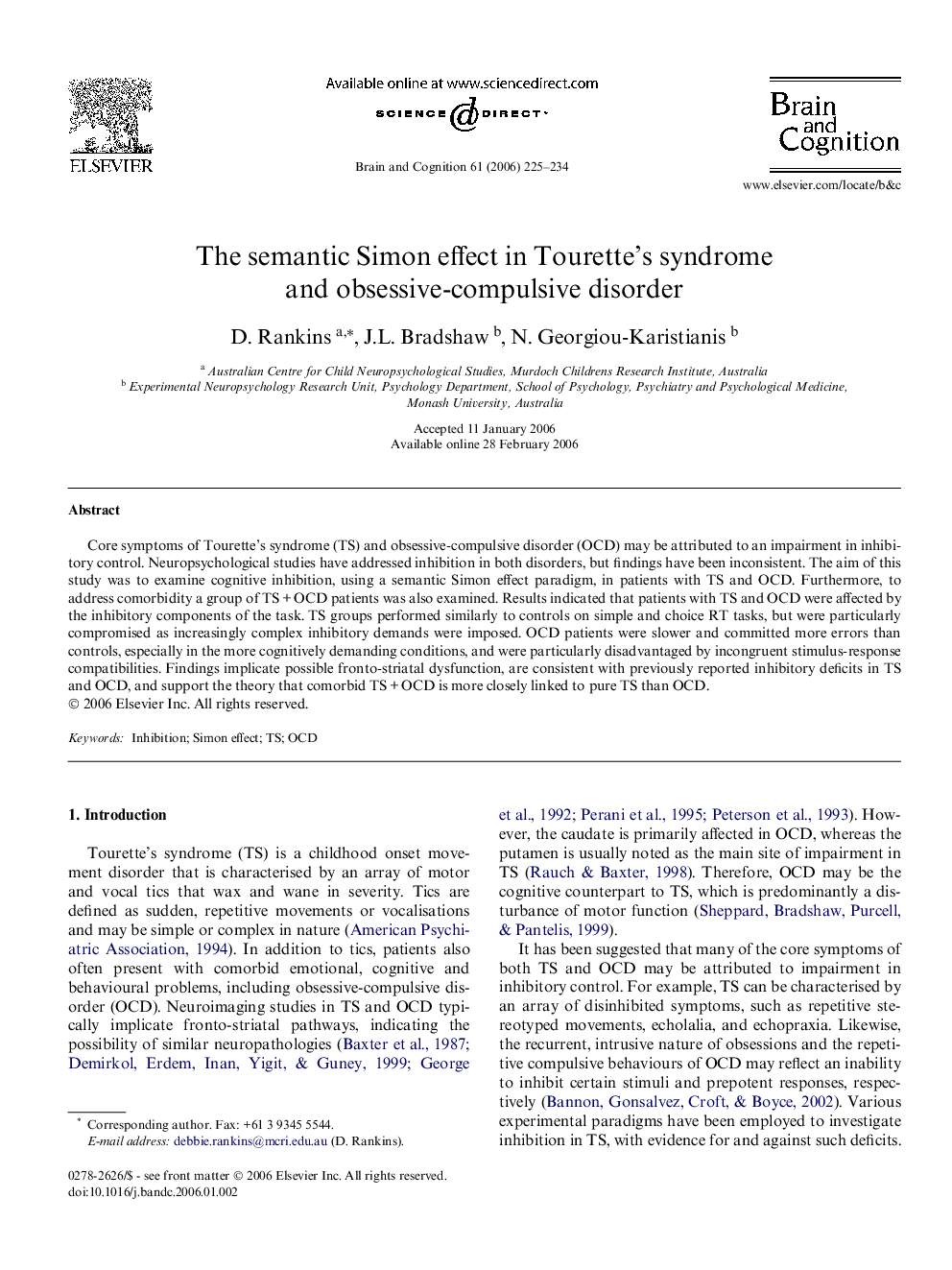| Article ID | Journal | Published Year | Pages | File Type |
|---|---|---|---|---|
| 925153 | Brain and Cognition | 2006 | 10 Pages |
Core symptoms of Tourette’s syndrome (TS) and obsessive-compulsive disorder (OCD) may be attributed to an impairment in inhibitory control. Neuropsychological studies have addressed inhibition in both disorders, but findings have been inconsistent. The aim of this study was to examine cognitive inhibition, using a semantic Simon effect paradigm, in patients with TS and OCD. Furthermore, to address comorbidity a group of TS + OCD patients was also examined. Results indicated that patients with TS and OCD were affected by the inhibitory components of the task. TS groups performed similarly to controls on simple and choice RT tasks, but were particularly compromised as increasingly complex inhibitory demands were imposed. OCD patients were slower and committed more errors than controls, especially in the more cognitively demanding conditions, and were particularly disadvantaged by incongruent stimulus-response compatibilities. Findings implicate possible fronto-striatal dysfunction, are consistent with previously reported inhibitory deficits in TS and OCD, and support the theory that comorbid TS + OCD is more closely linked to pure TS than OCD.
